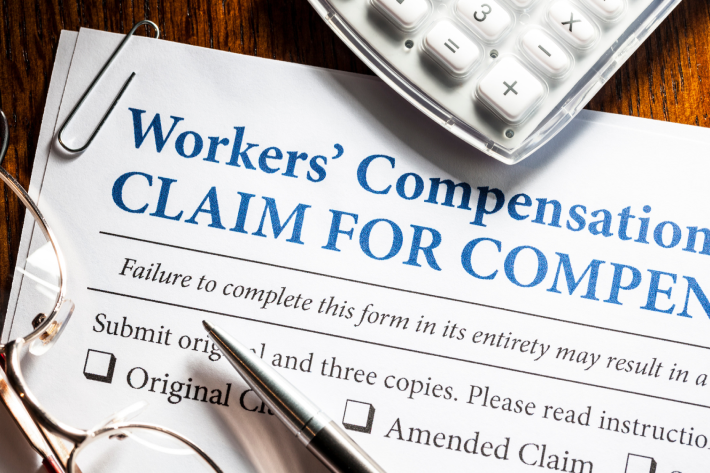
To successfully operate a company in Canada, it is necessary to learn and adhere to a wide range of regulations. Any company’s top goal is to keep workers from getting hurt on the job. Therefore, having workers’ compensation insurance is crucial. If a worker is injured or becomes ill on the job, workers’ compensation insurance can provide financial and medical assistance. Business proprietors should familiarize themselves with the specifics of workers’ compensation insurance to safeguard themselves and their employees.
When an employee is hurt or becomes ill while carrying out their job responsibilities, they are protected by a type of insurance known as workers’ compensation. The goal of this insurance is to help employees who can’t work because of an illness or injury by giving them money. In Canada, workers’ compensation insurance is required by law, and all employers must have it in place.
Workers’ compensation insurance makes a wide range of benefits available to employees who become ill or hurt while carrying out their duties. These advantages may include things like:
Employers in Canada are required by law to have workers’ compensation insurance. This includes businesses of all sizes, from small ones with one employee to big ones with a lot of employees. The only business that doesn’t have to follow this rule has only one owner and no employees. You don’t require workers’ compensation insurance in this situation.
In Canada, you must register as an employer with the workers’ compensation insurance authority in your province. Once you have registered, you will be required to pay premiums based on your industry and the number of employees you have. Your industry’s risk and your policy’s claim history are two major factors that will determine your premium.
Workers’ compensation insurance is offered by the various provincial and territorial workers’ compensation commissions across Canada. Each state, territory, and province in the country has its own workers’ compensation board, and each board is free to make its own decisions. Workers’ compensation insurance can be purchased by owners of businesses straight from the boards that oversee workers’ compensation in their respective provinces or territories.
When a business owner wants to buy workers’ compensation insurance, they will be required to provide information about their company. This information must include the number of employees they have, the kind of work they perform, and the amount of risk that is typical for their industry. The owners of businesses will also be required to provide information about their employees, which may include the identities of their workers as well as information about their jobs and salaries.
After an individual who owns a company has purchased workers’ compensation insurance, they will be subject to the obligation of making continuing premium payments. The size of the company, the number of people working there, and the degree of risk that is typical for the sector will all factor into the calculation of these premiums.
If you are an employer in Canada and you do not have workers’ compensation insurance, you could be subject to fines as well as other repercussions. If you don’t have workers’ compensation insurance and one of your employees gets hurt or sick while they’re on the job, you could be held responsible for their medical expenses and lost wages. Having no workers’ compensation insurance makes this a far more pressing issue. This can be a significant financial strain for smaller businesses, and in some instances, it can even cause them to close their doors as a result.
It is essential for those who own businesses to be aware of the significance of workers’ compensation insurance and to take the necessary precautions to ensure that they are covered by this policy to safeguard both their employees and their companies. Accidents can occur at any time, regardless of the industry in which your company functions; therefore, it is critical to be ready for anything that may come your way.
An employee can become ill or injured while performing their job responsibilities, and workers’ compensation insurance offers coverage for a variety of circumstances that may arise as a result of this possibility. The following is a list of some of the most common occupational illnesses and accidents that are covered by workers’ compensation insurance:
It’s essential to remember that only illnesses and injuries directly connected to an employee’s job activities will be covered by workers’ compensation insurance. If an employee is injured or becomes ill outside of work, their health insurance will be responsible for covering their medical expenses.
If an employee is injured or becomes ill while performing their job duties, they may be eligible to file a workers’ compensation claim. To file a claim, the employee will need to follow these steps:
The protection of both your employees and your company depends on having workers’ compensation insurance. It’s crucial to be aware of the workers’ compensation insurance regulations in Canada and to make sure you have this insurance in place as an employer. Workers’ compensation insurance provides financial and medical assistance to employees who are injured or become ill while performing their job duties and can help protect your business from significant financial liability. You can contribute to ensuring the safety of your employees as well as the success of your company by becoming knowledgeable about workers’ compensation insurance and taking efforts to ensure that you are adequately insured.
 Call Us Today!
Call Us Today!  Send A Message
Send A Message Office Address
Office Address101 Pine Street South Timmins ON, P4N 2K1
Leave A Reply